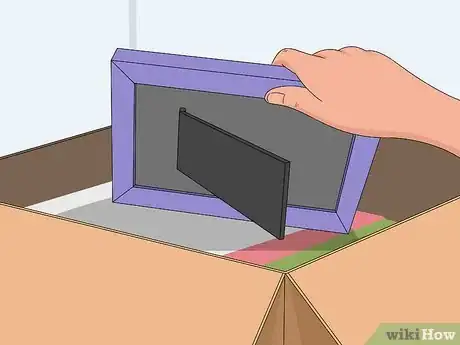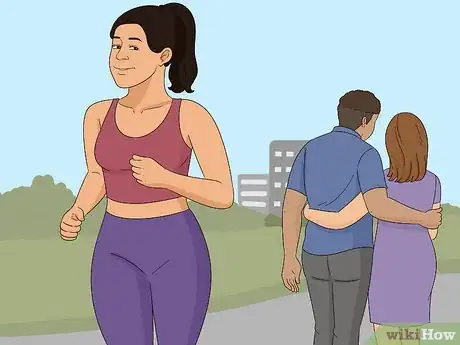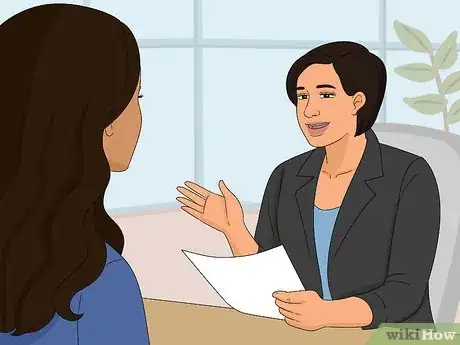This article was co-authored by Lena Dicken, Psy.D and by wikiHow staff writer, Kira Jan. Dr. Lena Dicken is a Clinical Psychologist based in Santa Monica, California. With over eight years of experience, Dr. Dicken specializes in therapy for anxiety, depression, life transitions, and relationship difficulties. She utilizes an integrative approach combining Psychodynamic, Cognitive Behavioral, and Mindfulness-based therapies. Dr. Dicken holds a BS in Integrative Medicine from the University of Hawaii at Manoa, an MA in Counseling Psychology from Argosy University Los Angeles, and a Doctor of Psychology (Psy.D) in Clinical Psychology from the Chicago School of Professional Psychology at Westwood. Dr. Dicken’s work has been featured in GOOP, The Chalkboard Magazine, and in numerous other articles and podcasts. She is a licensed psychologist with the state of California.
There are 20 references cited in this article, which can be found at the bottom of the page.
This article has been viewed 43,845 times.
Moving on from a past relationship can be raw and emotional, whether or not you were the one who ended things. But in the wake of all those emotions, letting go of the past can help you grow, get in touch with yourself, and even open your heart to new lasting love. We’ve put together a guide to help you move on from past love and heal. Looking for tips on moving on from a relationship? Here’s how you can start to let go.
Steps
Acknowledge your emotions.
-
Give yourself time to process any feelings related to the past. Try to label your emotions as they come, either by journaling or simply saying how you feel out loud. If you want to cry, scream, or shout, that’s okay, too. We promise you won’t feel this way forever. In the mean time, accepting your emotions without judgment will let you move on in a healthy way.[1] X Research source [2] X Research source
- However you feel is valid and real. The feelings of grief and rejection that can come with separating from a partner actually activate the same area in your brain as physical pain, but know that the pain is temporary.[3] X Trustworthy Source Proceedings of the National Academy of Sciences Official peer-reviewed and multidisciplary journal for the National Academy of Sciences. Go to source
Remember both the good and the bad.
-
Romanticizing past partners can make it hard to move on. It’s completely normal to hold onto the imaginary future you envisioned with an ex rather than seeing the reality of the relationship.[4] X Research source Think back on all the love and wonderful experiences you shared with your partner. At the same time, take a second to recognize your former partner’s flaws and any problems, fights, and pet peeves from your relationship.[5] X Research source
- Comparing past relationships to present relationships makes it easier to be critical of potential new partners. By remembering the reasons why you and your ex broke up, you can open yourself up to new people and possibilities.
Work through any resentment.
-
It’s hard to heal when you’re confused or angry about your breakup. Whether you saw your breakup coming from a mile away, or whether you feel blindsided, it’s completely understandable to hold onto negative emotions. Here are key steps to start letting go of that resentment so you can free yourself and move on:[6] X Research source
- Rather than blaming yourself or your partner, think of the broader causes that might’ve led to your breakup (ex. wounds from old relationships, mental health, finances, life stage etc.).
- Take control of your story. Try to see the events of the breakup as they are, and focus on a positive future full of love.
- Practice gratitude. Think about the incredible relationships and opportunities you have right now in your life.
Make a commitment to forgive and let go.
-
Forgiveness makes it easier to move on from negative emotions. While it’s normal to think back again and again on the past, at a certain point, it’s healthier to commit to changing your thought patterns. Acknowledge your partner’s role in any past hurt, and acknowledge any hurt you might’ve done to them. Then—we know it’s a tough ask—try to make the choice to forgive your partner and forgive yourself.[7] X Trustworthy Source Mayo Clinic Educational website from one of the world's leading hospitals Go to source
- Use forgiveness as a turning point to refocus on yourself and what you need in the future, rather than what you want to change in the past.
- You don’t have to reach out to your partner in order to forgive them. Forgiveness can be a personal process and mindset shift, too.
Create space between yourself and your ex.
-
It’s hard to let go when you see reminders of your past relationship. Try not to contact your ex, either in real life or on social media. You can unfollow them, block their number, and delete old pictures of the two of you. It might also help to box up any mementos of your relationship, like gifts and old photos. If your ex reaches out to you, let them know you need time and space to heal and process.[8] X Trustworthy Source Cleveland Clinic Educational website from one of the world's leading hospitals Go to source
- Similarly, steer clear of physical intimacy with an ex if you want to move on and form healthier, stable relationships.[9] X Research source
Reach out to friends and family.
-
Social support can help you through tough times. It’s easy to feel lonely as you try to move on, but you’re definitely not alone. Try to connect with friends and family face-to-face and share how you’re feeling with them. Call up a friend you haven’t talked to in a while. You can also join a community organization or local club to make new friends and build connections.[10] X Trustworthy Source HelpGuide Nonprofit organization dedicated to providing free, evidence-based mental health and wellness resources. Go to source
- If reaching out to people doesn’t come naturally to you, that’s okay. You can find a built-in, supportive community by joining a local or online support group.
Prioritize your health and well-being.
-
Create new routines to take care of yourself and your body. As you let go of a past relationship, healthy routines can create stability, even when it feels like a major part of your life has changed.[11] X Research source Start by setting a time to sleep and wake up every day. Then, reinforce healthy habits by aiming for 30 minutes of exercise, eating a healthy diet, and keeping up good personal hygiene.
- Treat yourself to a massage, a spa day, or even a night at home with tasty snacks and your favorite movie.
Reconnect with your interests and independence.
-
As you move on from the past, you have a huge opportunity for growth. Maybe you’ve always wanted to try out Brazilian jiu-jitsu or take a cooking class. You might’ve dreamed about traveling to Rome or volunteering at an afterschool program. Use this time to re-invent how you think and feel about yourself and your capabilities.[12] X Trustworthy Source PubMed Central Journal archive from the U.S. National Institutes of Health Go to source
- Try making a list of everything you want to do. Aim to cross 1 item off that list every day.[13] X Trustworthy Source Mayo Clinic Educational website from one of the world's leading hospitals Go to source
Ask yourself what you’ve learned from the past.
-
Use this time to learn what you want and need from future relationships. Despite all the hurt, your past can still have a positive and meaningful impact on your future. Is there anything you want to do differently moving forward? Sit down and write out a few goals or strategies for future relationships.[14] X Trustworthy Source American Psychological Association Leading scientific and professional organization of licensed psychologists Go to source [15] X Research source Here’s a list of questions to help you reflect:[16] X Trustworthy Source HelpGuide Nonprofit organization dedicated to providing free, evidence-based mental health and wellness resources. Go to source
- What role did you play in any past relationship conflicts?
- Do you see any trends in your past relationships or choice of partners?
- How do you react to stress and conflict in relationships?
- What traits do you want in a future partner? What traits do you want to avoid?
Treat yourself with kindness and compassion.
-
Catch your inner critic and focus on positive, hopeful statements. Look out for thoughts that use absolutes like “never” and “always.” Similarly, watch out for self-blaming statements that use words like “should’ve” or “must.” As a good test, check if the way you’re talking to yourself is how you’d talk to a friend or loved one. When negative words come through your head, spin them into encouraging statements.[17] X Trustworthy Source Mayo Clinic Educational website from one of the world's leading hospitals Go to source
- Rephrase a negative statement into a mantra like, “I deserve love, and I’m going to find someone incredible.”
- Give yourself credit for trying, even if you aren’t perfect (none of us are). For instance, “The relationship didn’t work out, but I gave it my best shot.”
- If you make a mistake, change a self-blaming thought with language like, “I messed up a little, but that doesn’t mean I’m a bad person or a bad partner.”
Be patient with new relationships.
-
Take your time to heal and ease into new relationships. It can be tempting to jump into a rebound relationship but take time to process your emotions and connect with yourself before you start dating again. By focusing on what makes you happy and rediscovering parts of yourself that you might have lost in the past, you can form more authentic relationships moving forward.[18] X Trustworthy Source Cleveland Clinic Educational website from one of the world's leading hospitals Go to source
- There’s no set amount of time to wait before starting a new relationship.
- Typically the longer you were together and the more involved you were in each others’ lives (ex. living together, raising kids together), the longer you’ll need before falling in love again.[19] X Trustworthy Source PubMed Central Journal archive from the U.S. National Institutes of Health Go to source
- You’ll know you’re ready to be a committed partner again when you know what you want from a relationship and know what you can give in a relationship.[20] X Research source
Open up to the possibility of new love.
-
There’s more than one person out there for you. Even though it may not feel like it now, you will find someone and you can fall in love again. Your next partner might not be exactly who you expect or check every box. To keep an open mind, try to come up with the 3 traits that are most important to you in your future partner.[21] X Trustworthy Source American Psychological Association Leading scientific and professional organization of licensed psychologists Go to source
- Your 3 traits can be about personality, appearance, or other characteristics. For instance, you might want a future partner who’s dedicated to community service, athletic, and who shares your religion.
- Research shows you can still have a healthy, fulfilling relationship even if you haven’t completely resolved feelings towards your former partner.
- In fact, getting into a new relationship after you’ve taken time to work on yourself can help you move on.[22] X Research source
Seek out counseling if you need more support.
-
Everyone needs extra help from time to time. Talk to your primary care physician for a referral to a therapist or look for an online counseling service like Better Help or Talkspace. If your feelings about the past start to get in the way of daily life, that could be a sign of depression or anxiety.[23] X Trustworthy Source Cleveland Clinic Educational website from one of the world's leading hospitals Go to source
- A mental health professional can also help you work through PTSD, trauma, and trust issues, especially if you're moving on from a toxic relationship.
- If you can’t afford therapy, check out free peer-lead support groups at https://www.nami.org/Support-Education/Support-Groups/NAMI-Connection.
You Might Also Like

 Signs Your Ex Will Eventually Come Back
Signs Your Ex Will Eventually Come Back


 What Are the Bases in a Relationship? Defining the Baseball-Sex Metaphor
What Are the Bases in a Relationship? Defining the Baseball-Sex Metaphor
 The Top Emojis a Girl Will Use if She Likes You
The Top Emojis a Girl Will Use if She Likes You
 How to Tell if Your Girlfriend Is Horny: 12 Signs She's Turned On
How to Tell if Your Girlfriend Is Horny: 12 Signs She's Turned On
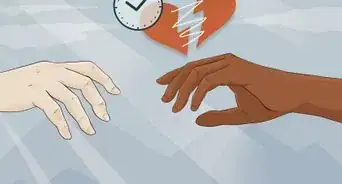 What to Do When Your Girlfriend Is Mad at You (10+ Steps to Take)
What to Do When Your Girlfriend Is Mad at You (10+ Steps to Take)
 12+ Texts to Send Your Girlfriend After a Fight: Apologies & More
12+ Texts to Send Your Girlfriend After a Fight: Apologies & More
 How to Have Phone Sex with Your Girlfriend
How to Have Phone Sex with Your Girlfriend
 33 Sweet & Romantic Apology Messages for Your Love
33 Sweet & Romantic Apology Messages for Your Love


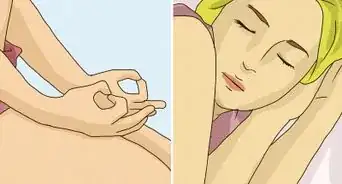 12 Ways to Break a Narcissist's Heart
12 Ways to Break a Narcissist's Heart
References
- ↑ https://wexnermedical.osu.edu/blog/why-its-important-to-feel-all-of-your-feelings
- ↑ https://tinybuddha.com/blog/how-to-let-go-of-a-past-relationship-10-steps-to-peacefully-move-on/
- ↑ https://www.pnas.org/content/108/15/6270.full
- ↑ https://tinybuddha.com/blog/how-to-let-go-of-a-past-relationship-10-steps-to-peacefully-move-on/
- ↑ https://www.rewire.org/romanticizing-past-relationships-ruin/
- ↑ https://www.psychologytoday.com/us/blog/your-wise-brain/202103/let-go-resentment-and-anger
- ↑ https://www.mayoclinic.org/healthy-lifestyle/adult-health/in-depth/forgiveness/art-20047692?pg=2
- ↑ https://health.clevelandclinic.org/grieving-after-a-break-up-6-strategies-to-help-you-heal/
- ↑ https://onlinelibrary.wiley.com/doi/abs/10.1111/j.1741-3737.2012.01029.x
- ↑ https://www.helpguide.org/articles/grief/dealing-with-a-breakup-or-divorce.htm
- ↑ https://www.mcgill.ca/counselling/files/counselling/surviving_a_break-up_-_20_strategies_0.pdf
- ↑ https://www.ncbi.nlm.nih.gov/pmc/articles/PMC6051550/
- ↑ https://www.mayoclinic.org/healthy-lifestyle/adult-health/in-depth/self-esteem/art-20045374
- ↑ https://www.apa.org/research/action/speaking-of-psychology/mind-love
- ↑ https://www.psychologytoday.com/us/blog/living-forward/201508/5-ways-move-ex-you-still-love
- ↑ https://www.helpguide.org/articles/grief/dealing-with-a-breakup-or-divorce.htm
- ↑ https://www.mayoclinic.org/healthy-lifestyle/adult-health/in-depth/self-esteem/art-20045374
- ↑ https://health.clevelandclinic.org/grieving-after-a-break-up-6-strategies-to-help-you-heal/
- ↑ https://www.ncbi.nlm.nih.gov/pmc/articles/PMC3115386/
- ↑ https://www.psychologytoday.com/us/blog/rediscovering-love/201611/15-questions-help-you-decide-youre-ready-date-again
- ↑ https://www.apa.org/research/action/speaking-of-psychology/mind-love
- ↑ https://journals.sagepub.com/doi/full/10.1177/0265407514525086
- ↑ https://health.clevelandclinic.org/grieving-after-a-break-up-6-strategies-to-help-you-heal/
About This Article





